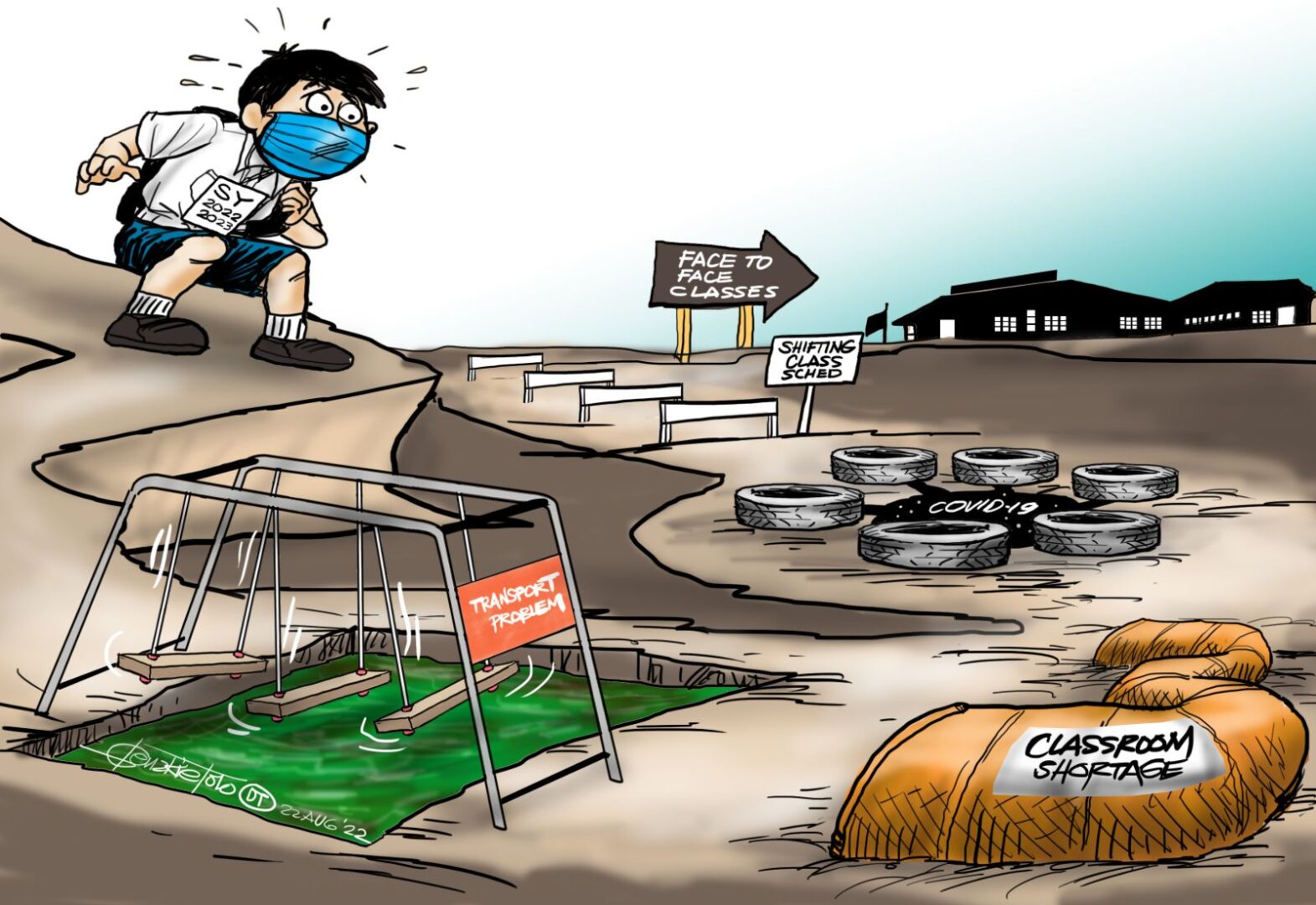Schoolyear 2022-2023 for basic education, comprising 203 school days, starts today, 22 August, with the Department of Education still hoping to surpass the 27.2 million enrollees across the nation last year. A week ago on 16 August, the number of those enrolled stood at 21,272,820, but with Filipinos known for last-minute action, DepEd’s 28.6 million target enrollees may still be attainable.
DepEd pegged the last day of enrolment for today, although it may be extended as it had been extended in the past, especially since these are not normal times and teachers may need a lot of time processing in-person, remote, and drop box enrolments. The number of enrollees would be an important gauge of whether parents already feel it safe to send their children to full face-to-face classes starting on 2 November.
Of the 21,272,820 enrollees, 18,722,393 are from public schools, 2,478,488 are from private schools, and 71,939 are from state universities and colleges, and local government-operated universities offering elementary and high school education. This schoolyear will provide the government, education managers and teachers valuable insights on how best to proceed with in-person classes with Covid-19 still very much a threat to the world.
By 7 July next year, a Friday, the Philippines would have completed its first in-person schooling since the pandemic reduced education to online affairs, with all the challenges that they entailed like providing students with laptops, tablets and Internet connectivity. This time around, parents and teachers will be adding to the equation physical challenges like transportation.
As pointed out by DepEd Undersecretary Epimaco Densing III during a House Committee on Basic Education hearing, the government will face anew problems like how to compensate for the 91,000 classrooms lack, and the unwieldy 68 students per classroom ratio.
While the government hustles to build more school buildings, it also has to put up temporary learning spaces to shield students from the elements. Likewise, DepEd announced the holding of class shifts to make do with the available learning spaces.
Still, the biggest threat would remain to be Covid-19, as while 92 percent of teaching and non-teaching personnel have already completed their primary vaccine series, only 19 percent of learners have been vaccinated.
As the national vaccination program was not mandatory, DepEd says that the vaccination status of both teachers and students would not be an issue in holding in-person classes. In fact, non-vaccinated teachers would be allowed to teach.
With the low vaccination turnout among students, and for teachers when it comes to booster shots, it would be critical that minimum health protocols like social distancing, the wearing of masks and frequent handwashing should be exercised in schools.
DepEd said it has given strict instructions to school officials to be strict in observing minimum health standards because the protocols would be our best way to minimize the spread of Covid-19 through schools.
